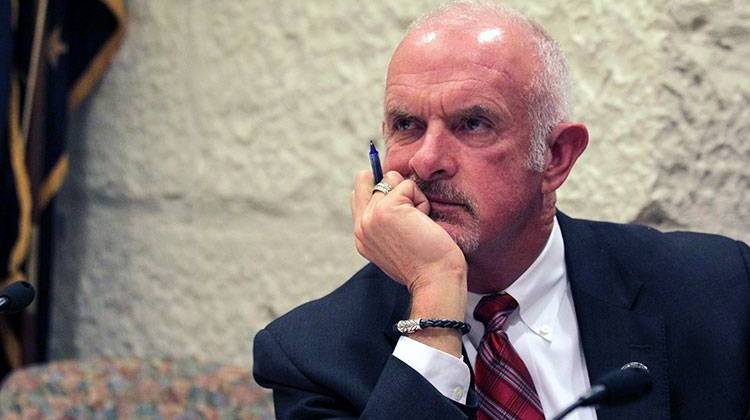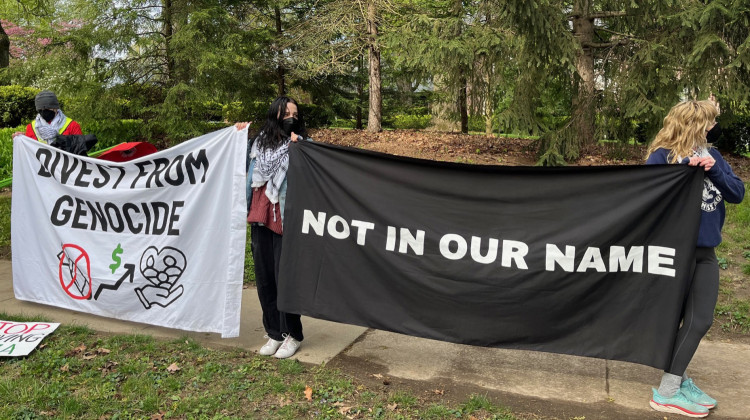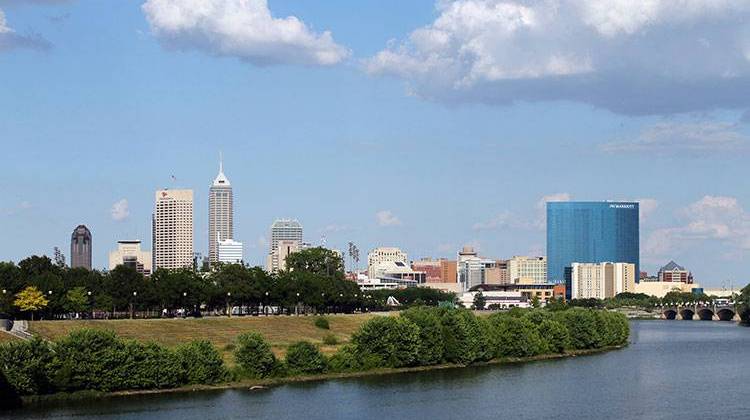Members of Indiana’s agricultural community rose up in support Tuesday of a bill that is meant to limit trespassing on farmland during a meeting of the Corrections and Criminal Law Committee on Tuesday.
Senate Bill 101 would create a new crime known as “agricultural mischief” and it’s aimed primarily at stopping secret videography and photography of farming operations.
A similar bill died on the last day of the 2013 session when lawmakers couldn’t find a compromise on the language.
Critics of last year’s bill included media outlets, environmentalists and other public service groups who said the law targeted whistleblowers and limited the ability of the public to report illegal activities seen on Indiana farms.
But Sen. Travis Holdman, R – Markle, who authored SB 101, said this year’s bill is different, in part because it doesn’t specifically address specific acts, such as photography and video. He called it a “good place to settle.”
And Holdman said Indiana law already protects journalists from possible prosecution.
“The Indiana media shield law goes a long way to provide the protection they need,” Holdman said.
SB 101 protect the rights of Indiana farmers – not limit the rights of media and whistleblowers, he said. And Holdman said the goal would be to avoid prosecution of people who take pictures of farm operations with the intent of enforcing Indiana laws.
Representatives from agricultural groups echoed Holdman.
Josh Trenary, executive director of the Indiana Pork Advocacy Coalition, said the privacy rights of Hoosier farmers have been ignored in the past.
“Farmers don’t give up property rights just because they’re a farmer,” Trenary said.
Trenary also said farmers deserve to have control over who enters their property and sees their operations.
He also added that the agricultural industry isn’t trying to hide illegal activity or animal abuse.
“From our standpoint, all bets are off if it’s illegal activity,” he said.
Trenary said he was also speaking on behalf of the Indiana Farm Bureau and the soy bean, poultry, beef cattle, dairy and corn industries in Indiana.
But SB 101 is already facing the same opposing arguments that doomed its predecessor. Erin Huang, Indiana state director of the Humane Society of the United States, said she believes the bill is even worse than last year’s.
“This bill is nothing short of alarming,” Huang said.
Huang said the legislation hinders the public’s right to ask questions and get information on the practices of the farms that produce their food.
“Maybe the activity isn’t illegal at this time, but we need to be able to have that public discourse,” she said.
Huang also said major media outlets such as The New York Times and The Boston Globe have spoken out against similar legislation in other states.
Dan Byron, general counsel to the Indiana Broadcaster’s Association, said he believes the bill is unconstitutional because it “punishes forms of speech.” Byron also said the law is “unconstitutionally vague.”
Byron, like Huang, said he believes the bill could hamper the public’s ability and right to know about farm practices.
“What is the harm? The harm is the public might actually find out what’s going on,” he said.
The committee did not vote Tuesday. It will discuss the bill again at a meeting next week.
Olivia Covington is a reporter for TheStatehouseFile.com, a news website powered by Franklin College journalism students.
 DONATE
DONATE







 View More Programs
View More Programs

 Support WFYI. We can't do it without you.
Support WFYI. We can't do it without you.